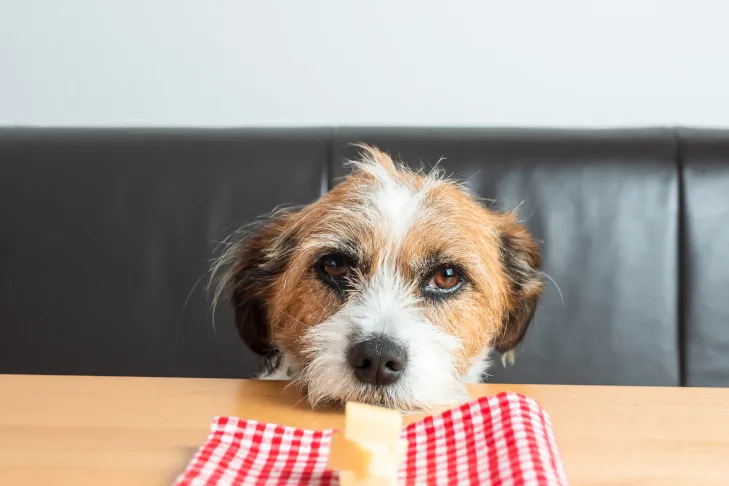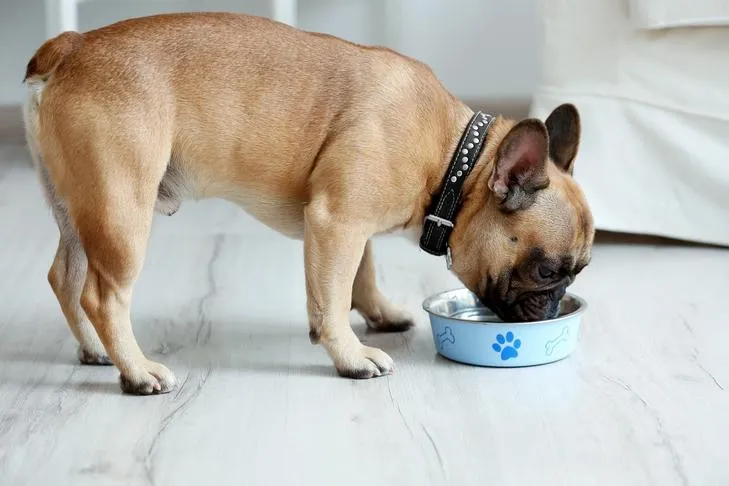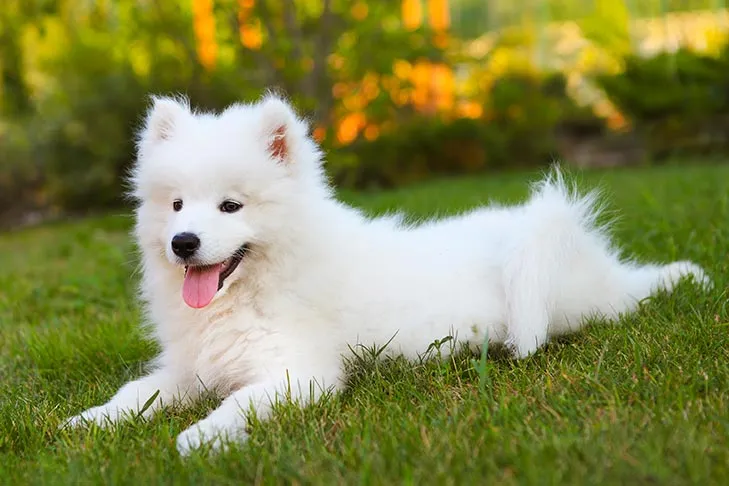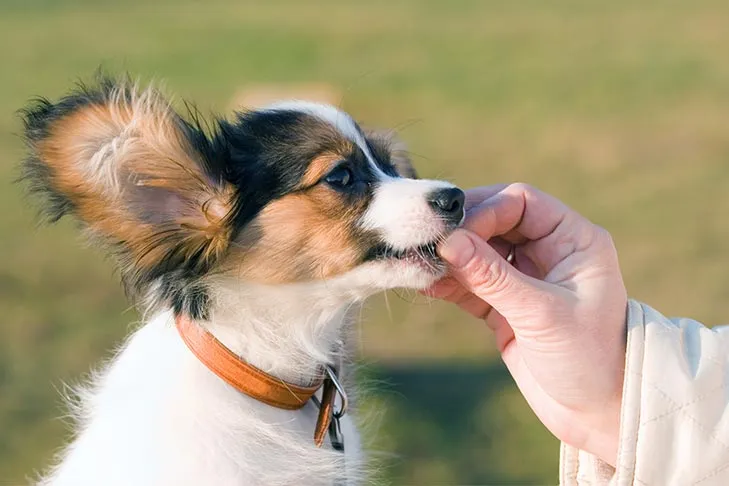Sharing food with our beloved canine companions is a common joy for many pet owners. As an integral part of our families, it’s natural to want to include them in mealtime experiences. However, not all human foods are created equal when it comes to doggy digestion and health. While some everyday items can be nutritious and delicious treats for your furry friend, others can be highly toxic and dangerous. Understanding which human foods your dog can eat and which to avoid is crucial for their well-being and a key part of responsible pet ownership. This guide from Dog Care Story will help you navigate the often-confusing world of canine nutrition, ensuring you can offer safe and healthy snacks without worry. For a broader perspective on safe human foods, you might find our article on what human food can you feed dogs particularly insightful.
Safe Human Foods for Dogs: A Detailed List
Many common kitchen staples can be safely shared with your dog, provided they are prepared correctly and offered in moderation. These foods can offer various nutritional benefits, from essential vitamins and minerals to healthy fats and proteins. Always remember to introduce new foods slowly and observe your dog for any adverse reactions.
Bread
Small quantities of plain bread are generally harmless for dogs, provided it contains no spices, particularly garlic or onion, and absolutely no raisins. While it won’t offer significant health benefits, as it lacks nutritional value and is high in carbohydrates and calories, a tiny piece won’t cause harm. Homemade breads are often a better choice than store-bought varieties, which frequently contain unnecessary preservatives. However, it’s always best to consider bread as an occasional, minimal treat rather than a regular part of their diet.
Cashews
Cashews can be a delightful treat for dogs, but they should only be given in very small amounts. These nuts are a good source of calcium, magnesium, antioxidants, and protein. Despite having less fat than many other nuts, excessive consumption can still contribute to weight gain in dogs. Ensure any cashews you offer are unsalted to prevent issues with sodium intake, which can be detrimental to canine health. A few unsalted cashews make for a nice, crunchy reward.
Cheese
In small to moderate portions, most dogs can safely enjoy cheese. While rare, some dogs can be lactose intolerant, so it’s wise to monitor your pet when introducing dairy products. Cheese can serve as a high-value treat, but due to its fat content, opt for lower-fat varieties like cottage cheese or mozzarella. Many dogs also enjoy specialized chews made from dried cheese, such as Himalayan dog chews. If you’re concerned about specific types of dairy, our guide on what cheese can dogs not eat offers more detailed advice.
 A dog resting its head on a kitchen table, looking at a piece of cheese.
A dog resting its head on a kitchen table, looking at a piece of cheese.
Coconut
This versatile fruit can offer several health advantages for dogs. Coconut contains lauric acid, which possesses antibacterial and antiviral properties. It can also help improve bad breath and alleviate certain skin conditions like hot spots, flea allergies, and general itchy skin. Both coconut milk and coconut oil are safe for canine consumption. However, always remove the fibrous outer shell, as it poses a significant choking hazard or can cause intestinal blockages if ingested.
Corn
Corn is a widely used ingredient in many commercial dog foods, attesting to its safety and nutritional value. It provides carbohydrates and some vitamins. When sharing corn with your dog, always ensure it is removed from the cob. The cob itself is indigestible and can lead to severe intestinal blockages, which often require surgical intervention. Cooked corn kernels, however, can be a safe and crunchy snack.
Eggs
Fully cooked eggs are an excellent and safe source of protein for dogs and can even help soothe an upset stomach. It’s crucial that eggs are thoroughly cooked, as raw egg whites contain avidin, an enzyme that can interfere with biotin absorption, potentially leading to a biotin deficiency over time. Scrambled, boiled, or poached eggs, plain and without seasoning, are ideal for your pet.
Fish
Fish, particularly salmon and sardines, provides a wealth of good fats and amino acids that can significantly boost your dog’s health. Salmon is rich in vitamins and protein, while sardines offer easily digestible bones for extra calcium. For most fish, it is imperative to meticulously remove all tiny bones to prevent choking or internal injury. Never feed your dog uncooked or undercooked fish, as it can contain harmful parasites. Always cook fish thoroughly, allow it to cool, and limit fish intake to no more than twice a week.
Ham
While ham is generally safe for dogs to eat, it is not the healthiest option due to its high sodium and fat content. A very small, plain piece as an occasional treat is acceptable, but it should never become a regular habit. Large amounts of ham can contribute to pancreatitis or other digestive issues in dogs. Always ensure the ham is cooked and free from any bones, excessive salt, or seasonings like onion or garlic.
 A French Bulldog eating food from a bowl at home.
A French Bulldog eating food from a bowl at home.
Honey
Honey is a natural powerhouse packed with nutrients such as vitamin A, potassium, calcium, magnesium, copper, and antioxidants. Feeding dogs small, controlled amounts of local honey may even help alleviate seasonal allergies by introducing trace amounts of local pollen, which can build immunity. Beyond consumption, honey’s antimicrobial properties make it useful as a topical treatment for minor burns and superficial cuts on their skin. Always ensure it’s pure honey and given sparingly due to its sugar content.
Milk
Dogs can drink milk, but caution is advised. Many dogs are lactose intolerant and may experience digestive upset, such as diarrhea, if they consume dairy products. While a small amount of milk might be fine for some, owners should be aware of the signs of lactose intolerance. Often, it’s safer to stick to water for hydration, or offer specialized lactose-free pet milk alternatives.
Peanut Butter
Peanut butter can be an excellent source of protein, heart-healthy fats, vitamins B and E, and niacin for dogs. The healthiest option is raw, unsalted peanut butter. However, it is absolutely critical to read the label carefully and ensure the peanut butter does not contain xylitol, an artificial sweetener that is highly toxic and potentially fatal to dogs, even in small quantities.
Peanuts
Unlike almonds, plain, unsalted peanuts are safe for dogs in moderation. They are rich in healthy fats and proteins that can benefit your dog’s diet. However, overfeeding can lead to an excess of fat intake, potentially causing pancreatic issues. Always choose unsalted peanuts, as high salt levels are difficult for dogs to process and can lead to sodium poisoning.
Popcorn
Unsalted, unbuttered, and air-popped popcorn can be an acceptable treat for your dog in moderation. It contains riboflavin and thiamine, which support eye health and digestion, along with small amounts of iron and protein. Ensure all kernels are fully popped before offering them to your dog, as unpopped kernels can be a choking hazard or cause dental damage.
Pork
Pork is a highly digestible protein source, rich in amino acids, making it a good addition to a dog’s diet, though it does contain more calories than some other meats. It is also less likely to cause allergic reactions in some sensitive pets compared to other common proteins. Always serve cooked pork, ensuring it’s plain, without excessive fat, salt, or seasonings like onions or garlic, which are toxic to dogs. Our article on what human meat is bad for dogs provides further guidance on meat safety.
 A Samoyed puppy lying peacefully in green grass outdoors.
A Samoyed puppy lying peacefully in green grass outdoors.
Quinoa
Quinoa, a complete protein, is increasingly found in high-quality dry dog foods. Its robust nutritional profile makes it a healthy and beneficial alternative to traditional starches like corn, wheat, and soy often used in kibble. Cooked quinoa, served plain, can be a great way to boost your dog’s nutrient intake.
Salmon
As mentioned previously, fully cooked salmon is an outstanding source of protein, beneficial fats, and amino acids. It plays a crucial role in promoting joint and brain health and significantly strengthens a dog’s immune system. Conversely, raw or undercooked salmon harbors parasites that can cause severe illness, including vomiting, diarrhea, dehydration, and potentially fatal Salmon Poisoning Disease. Cooking salmon thoroughly eliminates these dangerous parasites, making it safe.
Shrimp
A few cooked shrimp, offered occasionally, can be a healthy snack for your dog. It is absolutely essential to ensure they are fully cooked and that the shell, including the tail, head, and legs, is completely removed. Shrimp are low in fat, calories, and carbohydrates, while being rich in antioxidants, vitamin B-12, and phosphorus.
Tuna
Dogs can consume tuna, but only in very small, infrequent amounts. Cooked, fresh tuna in moderation is an excellent source of omega-3 fatty acids, which support heart and eye health. Canned tuna, however, can contain small amounts of mercury and higher sodium levels, which should be avoided in excess. If offering canned tuna, choose varieties packed in water (not oil) and ensure it contains no added spices.
Turkey
Turkey is a safe and lean protein source for dogs, provided it is cooked thoroughly and all excess fat and skin are removed. Crucially, always check for and remove any bones, as poultry bones can splinter easily during digestion, leading to internal blockages or tears in the intestines. Like other meats, any turkey with excessive salt, seasonings, onions, or garlic should be strictly avoided. For general food restrictions, consider reviewing articles like what foods can german shepherds not eat for breed-specific concerns, though principles generally apply.
Wheat or Grains
Contrary to popular belief, most dogs do not need to be on a grain-free diet, and grains like wheat and corn are perfectly acceptable. In fact, grains provide valuable sources of protein, essential fatty acids, and fiber, contributing to a balanced diet. If your dog has a confirmed grain allergy, then avoiding grains is necessary, but for healthy dogs, they are a beneficial component of their diet. Always consult your veterinarian for specific dietary recommendations tailored to your dog’s health needs.
Yogurt
Plain yogurt can be a perfectly acceptable and healthy snack for dogs. The active bacteria (probiotics) found in plain yogurt can aid in strengthening the digestive system. However, as with milk, some dogs may have difficulty digesting dairy. Always opt for plain yogurt without any added sugars, artificial sweeteners (especially xylitol), or fruit flavorings, as these can be harmful.
 A Papillon puppy gently taking a treat from a human hand.
A Papillon puppy gently taking a treat from a human hand.
Important Considerations When Feeding Human Food to Dogs
While many human foods are safe for dogs, responsible feeding involves more than just knowing what’s okay. Always feed in moderation, as even healthy treats should only make up a small portion of your dog’s daily caloric intake. Ensure all foods are prepared plainly, without seasonings, spices, or oils, and cut into appropriate, bite-sized pieces to prevent choking hazards. Always consult your veterinarian before introducing new foods, especially if your dog has any existing health conditions or allergies.
Human Foods Your Dog Should Never Eat
It is absolutely vital for every dog owner to be aware of common human foods that are highly toxic and dangerous for dogs. Ingestion of these foods can lead to serious illness, organ damage, or even death. Always keep grapes and raisins, chocolate, avocados, onions, garlic, macadamia nuts, and foods containing xylitol strictly out of reach. If you suspect your dog has consumed any toxic food, contact your veterinarian or an emergency animal hospital immediately.
Conclusion
Understanding what people food your dog can eat is an essential part of providing them with a happy and healthy life. While sharing certain human foods can be a delightful bonding experience and offer nutritional benefits, vigilance is key. Always prioritize your dog’s safety by offering approved foods in moderation, preparing them correctly, and being acutely aware of foods that pose a toxic threat. When in doubt, it’s always best to err on the side of caution and consult your veterinarian for personalized dietary advice. Providing the right nutrition ensures your furry friend can enjoy their treats safely and thrive by your side.
